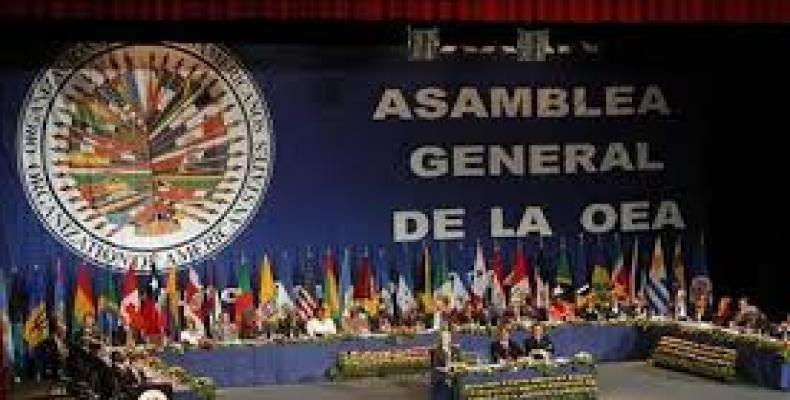Havana, June 10 (RHC) -- The recent General Assembly for the Organization of American States (OAS), held in Paraguay, proved that the United States is increasingly alone in its policy of isolating Cuba from the rest of the world, the Granma newspaper highlighted.
Cuba's leading newspaper emphasized in an article that "although the subject is not on the official agenda, the discussion about Cuba's participation in the coming Americas Summit," scheduled for next year in Panama, "was at the center of a good part of last week's event, June 3-5."
Evidently, Cuba's sister countries in the region are not inclined to tolerate another fifty years of injustice, and they wasted no opportunity to make that known, said Granma, emphasizing the failure of the hostile policies and isolation imposed by Washington against the island.
Cuba's attendance at the summit, which gathers the Heads of State and Government throughout the continent every three years, has been called for by the Latin American and Caribbean community ever since the first summit was held in Miami in 1994.
At both the Fifth Summit, held in Port of Spain, Trinidad and Tobago, and the Sixth Summit in Cartagena, Colombia, in 2012, it was made perfectly clear that leaving Cuba outside the group was a historic error that needed to be rectified as soon as possible.
Furthermore, the regional integration mechanisms that are gaining force throughout the region have also been firmly based on Cuba's participation.
The head-on rejection of Cuba's exclusion, along with a warning of non-participation at the Seventh Summit if Cuba was not invited, was once again led by Ecuador, Nicaragua, Venezuela and Bolivia, among others, said the article outlining the failure of U.S. policy.
The policy has left the United States alone in maintaining its indefensible criteria, against the massive support enjoyed at the meeting by Cuba, said the article, which also highlighted the important role of the regional integration process as a basis for regional unity based on diversity.
Now, as voices within the United States are increasingly calling for a change in policy toward Cuba, it remains to be seen whether the U.S. government will continue to allow itself to be held hostage by a tiny radical minority that defends continued aggression and subversion, said the article.


